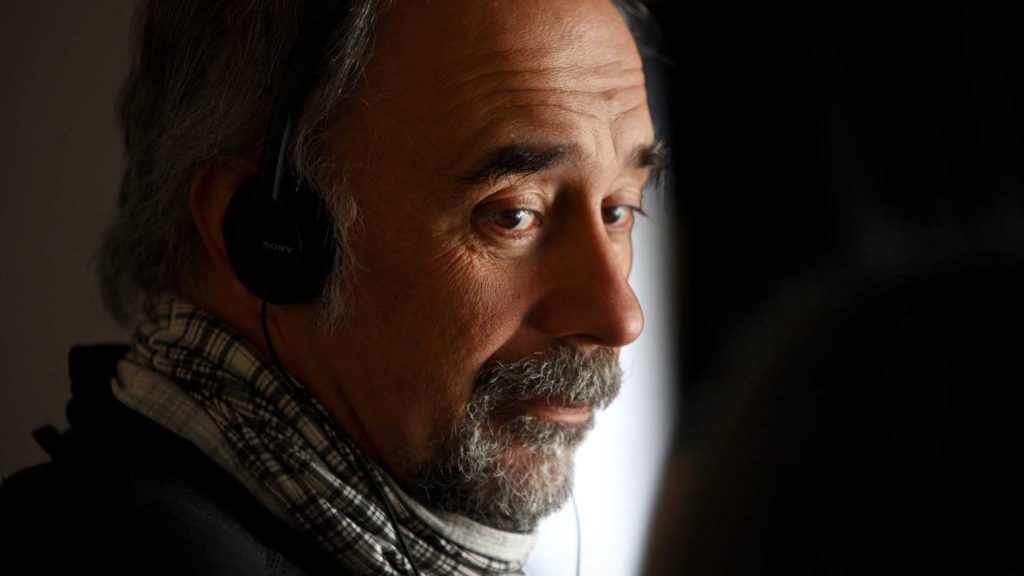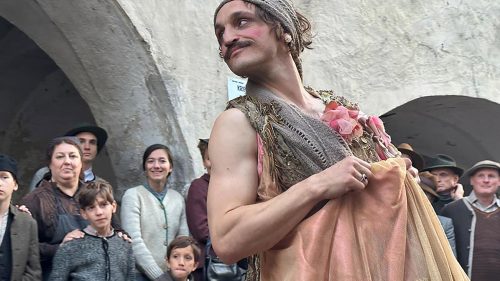
Filmmaker Giorgio Diritti loves to show stories on the troubled relationship between community and the different. Difference is relational, and it starts there where language refuses to evolve, gets stuck in conservatism of use, and tries unsuccessfully to defend some imaginary ancestral purity. In all of Giorgio Diritti’s films, local dialects act as a protection from the outside world (Occitan in his debut feature The Wind Blows Round, regional languages in The Man Who Will Come, the muteness and silence of his female characters).
For Diritti, communities would be hard-pressed to find ways to integrate whoever is different that go beyond mere tolerance or condescending hospitality. When the foreigner will exercise their rights, that’s when the short-circuit of rejection, closure, and expulsion goes off. The French shepherd will be prevented to lead his sheep through the barrens belonging to landlords who have since left, but anyway, community cannot accept it. In another film, naïve painter Antonio Ligabue won’t be allowed to marry a local woman – there are lines one just mustn’t cross. Later on, in There Will Come a Day, Augusta will end up in solitude on a Brazilian beach, fighting his inner, silent trauma after a lifetime spent helping missionary nuns and destitute favela dwellers in Manaus.
Giorgio Diritti worked with Ermanno Olmi and Pupi Avati. Following their path, Diritti picked a second essential force to guide his filmmaking: landscape, celebrated in its majestic otherness – a context, a mirror, rather than a subject. The landscapes of Italian Alps, Brazilian jungle, Apennine forests, and the lowlands of northern Italy turn into the arena for a pre-political conflict between society and the individual.
All in all, Diritti’s cinema has its own place in the world, a place between the visionary and the magical-realist of the new generation and that of the political-autobiographical analysis of the earlier generation.

Taken from the novel Il Seminatore by Mario Cavatore, the film tells the true story of Lubo Moser, a young Jenisch (Gypsy) and street artist in Switzerland in the 1930s. Young, strong, and cheerful, Lubo loves his family, his wife Mirana and their three children, and ...
A great debut feature, which the filmmaker made well past his fortieth birthday and after a long apprenticeship with Pupi Avati and many authored short films, TV films, and documentaries.
Obviously, Diritti is not as interested in the historical reconstruction of the Marzabotto Massacre (a Nazi mass murder of 770 civilians, October 1944) as much as the reconstruction of the world of the local farmers that were involved in the event.
The film is interesting because it filters one of the worst crimes of WWII through an anti-neorealist lens, preferring the small, nameless gesture to the heroism of death.
Following Augusta’s estrangement from any kind of community, the film seems to remind of Terrence Malick’s inner landscapes and soliloquies of the soul.